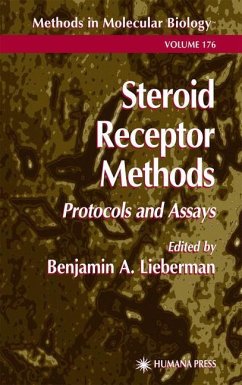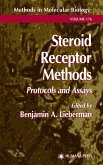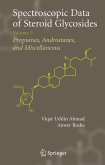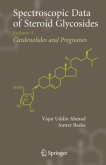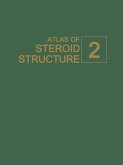This volume of the Methods in Molecular Biology series is entirely devoted to the study of steroid receptor biology. Steroid hormone receptors represent a powerful system for the study of both the most fundamental molecular mec- nisms of gene regulation and control and the gross physiological responses of organisms to steroid hormones. Research in this field has brought forth advances in the treatment of cancer, endocrine disorders, and reproductive biology, and allowed elucidation of the fundamental biological mechanisms of gene expr- sion. In Steroid Receptor Methods: Protocols and Assays, the reader will find a collection of methods and protocols submitted by many fine steroid receptor researchers from throughout the world. These authors have been instructed to create a highly informative cross-section of the latest research techniques ava- able. The resulting work is timely, useful, and approachable for both the ex- rienced researcher and the novice to the field. Because the steroid receptor family is represented by a wonderfully diverse, yet strongly interrelated set of steroid receptor proteins, Steroid Receptor Methods contains protocols for the prod- tion and purification of a variety of receptor forms, including the progesterone, glucocorticoid, and androgen receptors. These procedures provide the raw ma- rial needed to conduct sophisticated biochemical analysis of receptor properties. Other techniques presented allow the reader to perform biochemical experiments on DNA binding characteristics, hormone binding assays, and protocols using combinatorial chemistry for drug discovery.
Hinweis: Dieser Artikel kann nur an eine deutsche Lieferadresse ausgeliefert werden.
Hinweis: Dieser Artikel kann nur an eine deutsche Lieferadresse ausgeliefert werden.
"This extremely well written and useful collection of laboratory methods for the study of steroid biology is one of a series in Methods in Molecular Biology devoted to steroid hormones and their receptors. The book provides an up-to-date compilation of protocols and assays that are important for the study of steroids and their receptors... it will be invaluable to researchers already in the field to compare protocols and improve methods...The book is divided into sections of bioinformatics, purification protocols, steroid hormone binding assays, protein interaction assays, and cancer research and drug discovery. The bioinformatics section leads off the book with a wealth of information on web sites that are relevant for steroid hormones and their receptors. While there are probably over 40 different proteins involved in steroid hormone receptor interaction, the section on protein interactions is superb. It actually clarifies a good part of the literature as so many of the proteins have different names for the same molecule. Understanding the mechanisms of isolation of these proteins puts the literature into perspective. Furthermore, the protocols are in sufficient detail that our lab was able to adapt several of the techniques immediately." -Doody's Health Sciences Book Review Journal "This volume, part of the series 'Methods in Molecular Biology', describes in detail the protocols and assays used in the study of steroid hormone receptors." - Journal of Pediatric Endocrinology and Metabolism "Timely and highly accessible, Steroid Receptor Methods. Protocols and Assays provides biochemists and molecular biologists studying endocrine systems with a full range of the powerful tools needed for elucidating protein interactions with receptors and DNA, as well as for drug discovery." - Biomedicine & Pharmacotherapy "Anyone working techniques, or who is tempted to enter the field, would be well advised to obtain this book and read the relevant chapters first. PhD student and established scientist alike will find Steroid Receptor Methods a valuable addition the the library." - Molecular Biotechnology "Overall, the book is well written by an impressive list of experts and represents a valuable resource for both inexperienced and seasoned researchers of steroid receptors." -Today's Life Science

